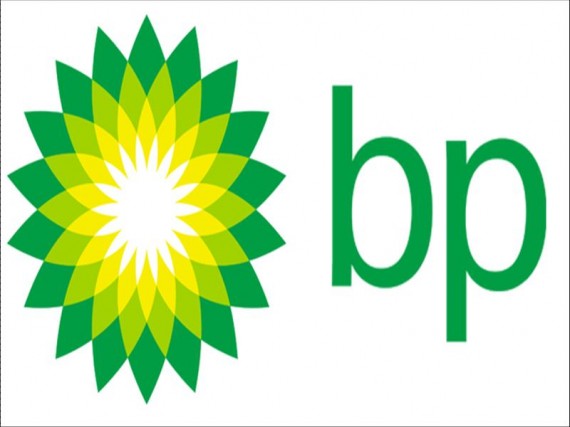The “Boycott BP” Movement: Foolish, Counterproductive, And Pointless
The New York Times’ Ron Lieber explains why the various movements calling on people to respond to the Gulf Oil Spill by boycotting BP gas stations doesn’t actually accomplish anything:
Advocacy organizations like Public Citizen urge consumers to stay away from BP stations. About 550,000 Facebook users have clicked the “Like” button on the Boycott BP page. And angry people have picketed at BP stations.
This doesn’t send a particularly powerful message to BP, though. After all, the company owns only a handful of the 11,000 stations that bear its brand and is trying to sell the few still on its books. So those who wish to inflict the maximum amount of pain on the company are instead putting much of the hurt on the family businesses who actually own the stations.
Just how little does BP gain from its gas stations, besides whatever ancillary marketing benefit it gains from the signs? The gas in its pumps may not be extracted, refined or stored by the company and may just get a spritz of BP additives right before it ends up at the service station. All of this puts a mere handful of coins in the company’s pocket per fill-up.
And the gas that people buy when they fill up elsewhere? Fuel from independent gas stations, grocery chains and big-box wholesale clubs sometimes comes directly from refineries or wholesalers that BP owns outright.
So, boycotting BP may actually send you to another gas station where you’ll buy……..BP gas.
The flaw in the boycott movement, of course is that it betrays a misunderstanding of how the oil extraction, gasoline refining, and gasoline distribution businesses actually work.
The oil that is extracted by a BP rig may be refined in a refinery owned by a completely different company, and then sold to a wholesaler owned by yet another company, who then sells it to a independent station owner who happens to have a sign that says “BP” at the front of his property. By the time the gasoline gets into the underground tanks at the station, BP has already extracted whatever revenue it was going to make from the entire transaction. By passing that particular station is an economic decision that will never show up on the books of BP or any of it’s subsidiaries.
So, unless you have some particular reason to want to cause economic harm to the small business man who owns your local BP station, that boycott your engaging in has no meaning at all other than making you feel self-righteous.
As for me, I’m going to stop tomorrow at the BP down the street and fill up.





Crazy. Next thing you’ll be suggesting is that boycotting French Fries doesn’t tweak the French. Well, I do it because it makes me feel good and righteous, which is the point isn’t it?
You forgot “predictable.”
so wt should we do? send them flowers? !
How will they ever repay all their debts to society if we don’t buy their gas?
I just filled up there, Is it ok? I like the new owners, and it’s close.
It has taken far too long for someone to write this article and I give Mr. Lieber props for writing outside the “BP is evil and we must punish them” box that the vast majority of journalists have been lazily stuck in for weeks.
I have been a nondestructive testing (NDT) inspector performing technical services for oil companies for over 10 years. Along with the other majors, I have dealt significantly with BP over the years, and have seen how they operate at several different business units. I spent the majority of 2008 and 2009 rotating with a colleague in and out of Prudhoe Bay, AK for BP Exploration. We were there to provide an advanced form of ultrasonic pipeline testing as a direct consequence of the 2006 oil spill and to fulfill BP’s new beefed up efforts to prevent a repeat occurrence. I have dealt with Doug Suttles while he was president of BP Alaska and given presentations to him, Bob Malone, members of congressional oversight committees, officials with the EPA, ADEC, and various others who make the rules for how the exploration game is played and what rules are set.
One thing that needs to be said right from the start: This could have happened to any oil company involved in exploration and production. I have been a part of this industry long enough to confidently say that there is not one major oil company that plays this game any different than any other. Before this instance, Exxon was the name that was brought to mind by the words “oil spill”. Very easily Royal Dutch Shell could have owned the Deepwater Horizon, and then we would all be looking for Shell stations to boycott. But, as Mr. Lieber points out, refusing to buy gas from a BP station might make you feel all warm and fuzzy inside, but in actuality, it accomplishes nothing other than just that. These companies might not all be completely joined together on the same balance sheet or in brand name yet, but they are tied together in very complex ways that makes it absolutely impossible to single out one company’s product and refuse to buy it.
Take, for instance, the Prudhoe Bay Oilfield (PBO) and Trans-Alaskan Pipeline System (TAPS). Many news stories these days are diving back into the 2006 spill to show a pattern of negligence by BP. They are researched just enough to provide that BP Alaska operates PBO and it supplies around 20% of our nation’s oil needs. Actually, BP owns only 26% of the oilfield though, with Exxon and Conoco owning 36% apiece, and ownership of the crude gets even more confusing as it bundled up and sent south through TAPS. At some point while it is making it’s days long journey to Valdez, it can be owned by very many different companies before it is shipped to refineries for processing and bulk stored. Crude is not a brand distinguishable product. I have never seen a container of oil and thought, “yep, good ol’ Exxon crude there”. In reality, the only thing that distinguishes the gas you fill up with from any other is the snake oil that is added in the very last step, giving it the completely benign power of Techron, V-Power, Invigorate, etc. If it wasn’t for this minute amount of detergent added, the product would be virtually identical across the board. My point is: gas is gas. And since BP actually only makes a point-of-sale profit from a few hundred of their branded stations in this country, it begs the question: What purpose could boycotting BP gas stations serve other than to prove how misinformed Americans are about who their fuel dollars actually go to? The only real harm that could come to BP from a boycott is ancillary image damage being a catalyst to shareholders dumping their shares.
And why the rage against BP anyway? I understand the anger in general, but why are they so demonized? Much has been made of BP’s “cost-cutting” actions and many news outlets have taken you down the fallacy expressway from “cost-cutting” to “criminal”, but did anything illegal really occur? I know that BP broke zero laws to cause this spill or I would never have read the words “cost-cutting” ever. These words would have been replaced by “illegal” in every single instance. BP legally chose one thing instead of another more-expensive thing in a few instances and the media has cherry-picked them to use as anecdotal evidence of BP’s criminal negligence. What I see is a company with the very reasonable goal of drilling for oil under the laws and regulations of this country and had been successful at it. There was an accident that turned catastrophic and now the country has coalesced into a retaliatory mob against BP, with no apparent ceiling on how far to go in piling on blame and revenge. But, in the end, can anyone confidently say this: “BP was wrong to do _____ , therefore an oil spill occurred”. Thousands of news stories are persuasive, but until one actually has evidence of fault on BP’s part, then, in my eyes, they are only appealing to the ignorance and castigatory nature of the masses.
A very substantive comment Mr. Lance.
I see the American disease to be optimistic expectations and if something goes wrong, you can usually figure out their demons by whom they blame, whether it’s big, impersonal government or big, impersonal business.
As far as I can tell, the oil production operation was permitted by USEPA according to the same permit issued to all oil exploration and production operations on the Texas/Louisiana Gulf. As far as the pre-regulatory controls were concerned, all of these operations are the same. The same standard of care would be expected from each. I’ve read no allegation that the permits were violated here.
Spills and releases are expected outcome of all industrial operations, which is why there is a National Contingency Plan in place to respond to them, whether oil platforms or plastic factories. Our policy’s expectations aren’t that optimistic.
Mr. Lance — The reason that people are so angry when BP only followed the laws and regulations to drill for oil is a widespread belief — based on a substantial amount of evidence — that BP used its money and influence to make sure that the laws and regulations were exactly what they wanted. They bribed the regulators to make sure there was no oversight and paid off (primarily) Republican lawmakers to ensure that laws were rewritten to absolve them of responsibility should anything go wrong. They are not the innocent victims of a tragic accident here. They took shortcuts they would never have been allowed to take off another country’s coastline because they were able to game the system.
wr — Your comment mirrors what I feel is an alarming amount of other such posts and blogs online and I certainly can’t fault you for taking the majority view. With such an overwhelming amount of belief out there that BP has bribed regulators to allow them to run willy-nilly in our nation’s most precious habitats, I am not surprised that so many people just assume it to be true. However, I have yet to see any evidence whatsoever to back up this speculation-turned-fact, and until I do, it will be nothing more than an appeal to ignorance in my view. I mean, can you actually imagine the fallout that would occur if it really WAS proven that BP bribed Regulator A and Regulator B and because of this arrangement a situation was put into place that caused the oil spill in the gulf? Do you believe for a second that there aren’t thousands of investigative journalists out there desperately trying to uncover just this kind of arrangement? Don’t you think that if any bribing of officials actually did take place that we would know all about it in print from all of the major news outlets instead of just an enormous amount of online opinion? If there was any evidence to what you are saying, every household in America would know the regulators involved, when it happened, where it happened, the compensations involved, etc. Do this: Google “BP bribed” and see if you get anything other than hundreds of thousands of pages of assumption.
I don’t fault BP especially. It’s more the total system, from “I want cheap gas for my SUV” up through hundreds of millions in compensation for CEOs, and then the whole system of “regulatory capture.”
The story I heard from someone at an oil services firm was that he was writing law, to be inserted into an upcoming environmental law, as had been agreed between lobbyists and congressmen. That shouldn’t be too much a surprise. That’s the way sausage is made. The congressman might say to the lobbyist, “well what text works for you?”
That’s regulatory capture, right there.
Again though, as a Prius driver, my reaction to SUV drivers who want Obama to fix BP’s leak is … “are you just figuring this out now?” Individual responsibility is so last-century.
So is the argument thus that there is no free market mechanism to allow the public to voice its outrage with BP? Perhaps an update could enlighten us on what we as consumers in a free enterprise system could do without subjecting BP to more costly government regulation? Or else I guess we’ll have to do crazy things like lift liability caps or enforce safety regulations , aka socialism.